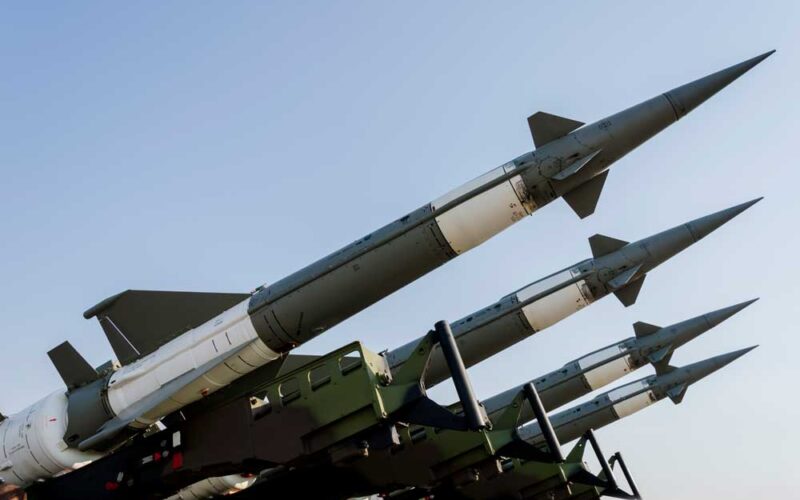With Donald Trump taking office as the new president of the United States in 2025, his presidency has garnered significant attention not only from Americans but also from people worldwide. This article delves into the potential effects of Trump’s leadership on South Korea’s military strategies and defense systems in response to the ongoing threat posed by North Korea. Additionally, it examines how Trump’s policies could influence the global economy, including trade relations, financial markets, and international partnerships. His decisions are expected to shape not only U.S. domestic affairs but also geopolitical dynamics, making it essential to analyze their broader implications. From economic alliances to security agreements, this presidency may redefine global relationships in profound ways, directly impacting nations like South Korea and beyond.
Impact on South Korea’s Military Posture
During his first term, President Trump adopted a strong stance on increasing financial contributions from allies hosting U.S. military forces, which significantly affected defense negotiations. One of his key proposals was that South Korea should contribute $10 billion annually for the stationing of U.S. Forces Korea (USFK), labeling the nation as a “money machine” (Song, 2024). This demand sparked prolonged discussions over the Special Measures Agreement (SMA), which governs cost-sharing responsibilities between the two nations.
Although a revised SMA was finalized in 2024, uncertainty lingers as the Trump administration may push for further renegotiations, potentially creating friction in the U.S.-South Korea alliance (Choi, 2024). Such tensions could lead to challenges in maintaining the current level of cooperation, especially amid growing security concerns on the Korean Peninsula.
Moreover, Trump’s direct engagement with North Korean leader Kim Jong-un during his initial presidency marked a groundbreaking but controversial diplomatic approach. Despite several high-profile summits, progress on denuclearization remained minimal, raising skepticism about the effectiveness of these talks. A renewed Trump presidency could revisit this strategy, emphasizing personal diplomacy while reshaping regional security dynamics. This could compel South Korea to reevaluate its defense posture and collaboration with the U.S., particularly as it navigates the delicate balance between deterrence and diplomacy (Snyder, 2023).
Global Economic Implications
President Trump’s economic strategy has consistently revolved around protectionist policies, prioritizing American industries over global trade norms. Central to his agenda is the imposition of steep tariffs, including a universal tariff ranging from 10% to 20% on all imports, with specific tariffs on Chinese goods climbing as high as 60% (Popli, 2024). This approach represents a stark shift from traditional US economic policy, which has typically emphasized free trade and global economic integration.
Experts caution that such aggressive tariff policies could disrupt global supply chains, hinder international trade, and place significant pressure on export-driven economies, particularly in Asia and Europe (Thompson, 2024). Countries like Germany, South Korea, and Japan, whose economies heavily depend on manufacturing and exports, may face reduced demand and heightened production costs. Additionally, U.S. businesses that rely on imported materials might experience increased costs, potentially passing these expenses onto consumers and fueling inflation domestically.
Moreover, President Trump’s broader economic plans, including substantial federal spending cuts and a confrontational stance toward major global powers such as China and Russia, raise concerns about their long-term implications. Analysts warn that these measures could weaken international alliances, disrupt the global political order, and strain multilateral institutions like the World Trade Organization and NATO (Rubin, 2024). Over time, this may lead to increased geopolitical instability, negatively impacting both developed and developing nations.
Furthermore, critics argue that the focus on protectionism could reduce U.S. economic competitiveness by isolating American industries from global innovation and collaboration. Such policies may also provoke retaliatory measures from trading partners, potentially sparking trade wars and deepening economic divides. As the global economy is intricately interconnected, the ripple effects of these actions could extend far beyond the United States, influencing global economic stability for years to come.
Conclusion
President Trump’s return to office in 2025 is poised to reshape international relations and economic dynamics on a global scale. For South Korea, the renewed focus on defense cost-sharing and direct engagement with North Korea introduces both challenges and opportunities in its alliance with the United States. The potential for renegotiations of agreements, coupled with uncertainties surrounding regional security, underscores the need for strategic foresight and diplomacy.
On the economic front, Trump’s emphasis on protectionist policies could significantly alter global trade patterns. His tariff-driven agenda, while aimed at bolstering American industries, risks disrupting supply chains, escalating trade disputes, and placing pressure on export-reliant economies. Such measures might provoke retaliatory actions, deepening economic divides and potentially destabilizing financial markets worldwide.
Given the interconnected nature of today’s geopolitical and economic systems, Trump’s policies are likely to have far-reaching implications. Nations will need to adapt swiftly to shifting dynamics, ensuring that alliances and partnerships remain resilient in the face of new challenges.
Ultimately, the global community must carefully monitor the ripple effects of this presidency, striving for balance between national interests and cooperative solutions. By fostering dialogue and collaboration, world leaders can mitigate risks and navigate an era of significant transformation.
References
Choi., D., 2024., Potential Trump presidency shadows military cost-sharing talks with South Korea. [online] Available at: https://www.stripes.com/theaters/asia_pacific/2024-07-02/korea-sma-special-measures-agreement-14371420.html [Accessed 16 Nov. 2024].
Popli., N., 2024., What a Donald Trump Win Would Mean for the Economy. [online] TIME. Available at: https://time.com/7095898/donald-trump-economy-plan-2024/.
Rubin., G., 2024., Breakingviews – Trump re-election entrenches global instability.
Reuters. [online] 6 Nov. Available at: https://www.reuters.com/breakingviews/trump-re-election-entrenches-global-instability-2024-11-06/.
Sang-ho., S., 2024., (LEAD) Trump says S. Korea would pay $10 bln per year for USFK stationing if he was in office. [online] Yonhap News Agency. Available at: https://en.yna.co.kr/view/AEN20241016000351315 [Accessed 16 Nov. 2024].
Snyder., A., S., 2023., What Would a Second Trump Administration Mean for North Korea? [online] Available at: https://www.cfr.org/blog/what-would-second-trump-administration-mean-north-korea.
Thompson., P., 2024., Global economy experts fear tariffs, trade disputes in 2nd Trump term. [online] Business Insider. Available at: https://www.businessinsider.com/global-reaction-donald-trump-election-victory-tariffs-trade-disputes-2024-11?utm_source=chatgpt.com [Accessed 16 Nov. 2024].
